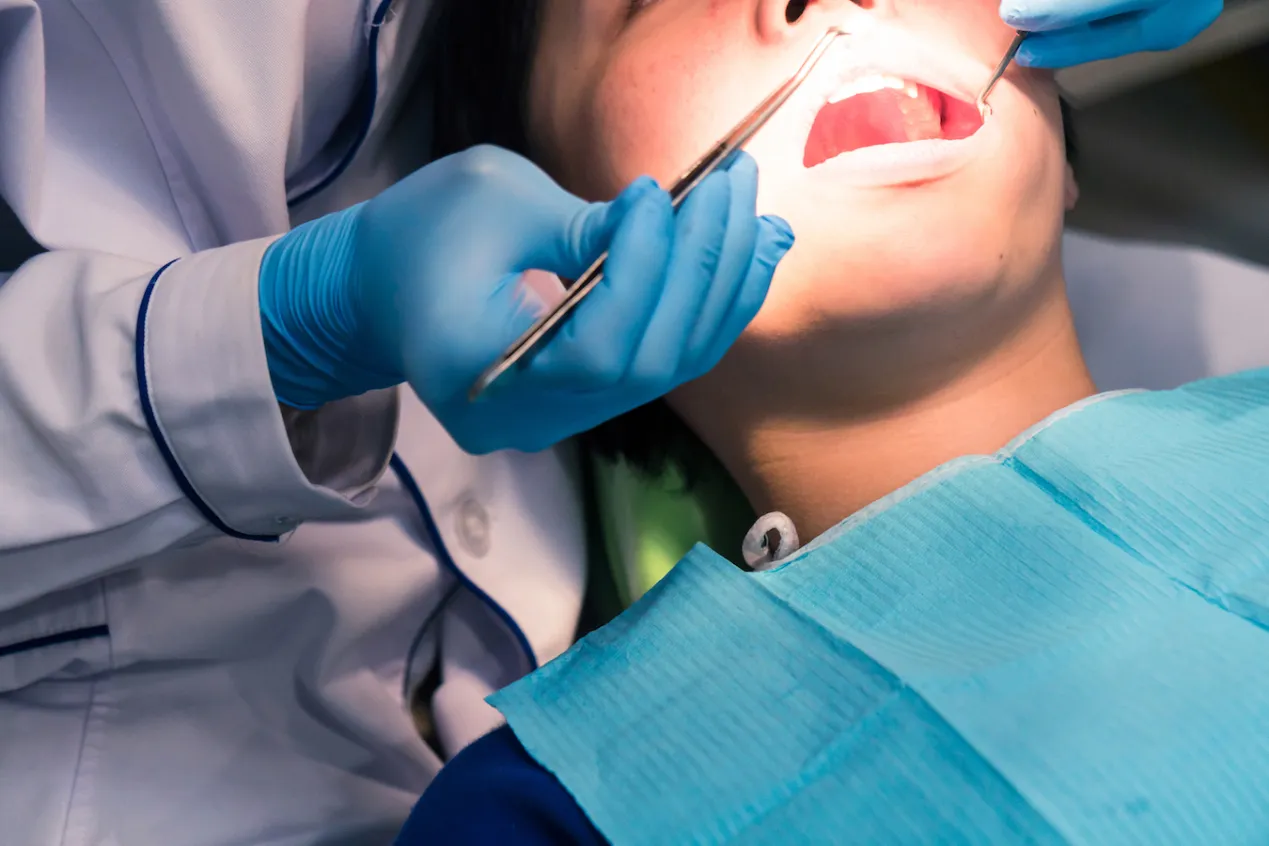The Benefits of Routine Checkups to a Dentist Eugene Oregon
Wiki Article
An Overview to Usual Dental Problems That Need a Dentist's Care
Toothaches, for instance, can be symptomatic of severe problems such as dental caries, fractured teeth, or abscesses, each calling for particular treatments like dental fillings or origin canals. Influenced wisdom teeth and jaw disorders can introduce substantial discomfort and difficulties.Toothaches
Toothaches are an usual dental problem that can vary from mild discomfort to severe pain, usually indicating a hidden concern that requires expert focus. This discomfort can stem from a selection of sources, including oral tooth cavities, broken or fractured teeth, and dental abscesses. Each of these conditions positions substantial dangers if left neglected, potentially resulting in a lot more extreme complications.Tooth decays, also referred to as decays, are triggered by the accumulation of plaque that erodes tooth enamel, leading to holes or pits in the impacted teeth (dentists eugene). Cracked or fractured teeth, on the other hand, might arise from trauma, grinding, or attacking right into hard items. These structural problems can expose the delicate inner layers of the tooth, causing acute pain and boosting the risk of infection. Abscesses hurt infections at the origin of a tooth or between a tooth and the gum tissue, generally arising from severe decay or unattended cavities.
Effective treatment of toothaches involves addressing the origin. This might include fillings for tooth cavities, crowns for broken teeth, or root canals and anti-biotics for abscesses. Early treatment by a dental expert can protect against additional damage and minimize discomfort, making sure optimum oral health and wellness.
Gum Disease
Gum condition, a prevalent yet typically forgotten oral condition, manifests with inflammation and infection of the periodontals and sustaining tissues. If left unattended, gingivitis can progress to periodontitis, a much more extreme form defined by the destruction of the supporting bone and connective cells, inevitably leading to tooth loss.The primary root cause of gum illness is microbial plaque, a sticky, anemic film that frequently forms on teeth. Poor oral health, smoking, genetic tendency, and particular clinical problems, such as diabetes mellitus, can aggravate the danger of creating periodontal condition. Normal oral examinations are essential for early detection and administration of this condition.
Therapy for gum illness ranges from professional oral cleansing and scaling to advanced procedures like root planing and gum surgical treatment, depending upon the intensity. Keeping excellent dental hygiene techniques, including cleaning twice daily, flossing, and making use of a disinfectant mouth wash, can substantially decrease the threat of gum tissue disease and advertise much healthier gums.
Tooth Cavities
Cavities, additionally referred to as tooth decays, are a common dental condition characterized by the damage of tooth enamel due to acid-producing germs in the mouth. These bacteria flourish on sugars and starches from food and beverages, creating acids that gradually deteriorate the enamel, causing dental caries development.
Early-stage tooth cavities might not reveal signs, yet as they proceed, they can trigger tooth pain, level of sensitivity to warm or chilly, noticeable holes or pits in the teeth, and staining. If left without treatment, tooth cavities can permeate much deeper layers of the tooth, possibly leading to serious discomfort, infection, and even tooth loss.
Preventing dental caries involves a combination of excellent dental health methods and dietary behaviors. Routine cleaning with fluoride toothpaste, flossing, and regular oral check-ups are important. Dental practitioners may additionally advise extra safety nets, such as fluoride treatments and oral sealers, to shield teeth from degeneration.
Treatment for dental caries depends upon their severity. Minor cavities can be resolved with oral fillings, which restore the tooth's structure. If the degeneration has gotten to the tooth's pulp, extra innovative situations might require crowns or even root canal treatment. Timely intervention by a dentist is important to avoid issues and preserve general oral wellness.

Impacted Wisdom Teeth
Affected wisdom teeth are a prevalent dental concern that happens when the 3rd molars, typically referred to as knowledge teeth, fall short to fully visit the website emerge or align properly within the mouth. This problem typically results from insufficient area in the jaw or an irregular growth angle of the teeth. Impacted knowledge teeth can bring about a selection of issues, consisting of infection, damage, and discomfort to adjacent teeth.When wisdom teeth come to be influenced, they are usually partly emerged or stay completely beneath the periodontal line. This partial eruption can develop a pathway for germs to go into the periodontals, leading to infections that materialize as swelling, discomfort, and even fever. Additionally, affected wisdom teeth can apply stress on neighboring teeth, possibly causing crowding or shifting.
A thorough oral assessment, generally including X-rays, is necessary for identifying affected knowledge view it now teeth. Treatment often includes surgical removal, executed by an oral doctor. The treatment intends to minimize pain and stop additional complications, such as cysts or damages to surrounding bone structures. Post-operative care is crucial to guarantee correct healing and lessen the danger of infection. Routine oral check-ups are advisable to monitor the problem and maintain oral health and wellness.
Jaw Disorders
Jaw problems, collectively understood as temporomandibular joint (TMJ) conditions, include an array of conditions that influence the jaw joint and surrounding muscular tissues. These problems can manifest through signs and symptoms such as pain or tenderness in the jaw, problem eating, a standing out or clicking audio when opening up or closing the mouth, and also chronic headaches. TMJ conditions can occur from numerous elements, consisting of joint inflammation, jaw injury, or regular actions like teeth grinding or jaw clenching.Diagnosis of TMJ problems normally involves a comprehensive evaluation by a dental expert, including a physical examination of the jaw, dental X-rays, and often progressed imaging techniques like MRI or CT scans to evaluate the joint's problem. Non-invasive techniques such as physical treatment, oral splints, and drugs aimed at reducing inflammation and pain are commonly first-line therapies.
Early intervention by a dental specialist is critical to avoid the development of TMJ disorders and to preserve total oral health and wellness. Individuals experiencing persistent jaw pain or disorder ought to seek prompt examination and treatment.
Verdict
Preserving oral wellness demands prompt professional care to attend to common oral conditions. Toothaches typically suggest underlying issues such as cavities, cracked teeth, or abscesses, calling for prompt treatment. Gum tissue illness, from gingivitis to periodontitis, needs regular dental check-ups and cleansings to stop progression. Influenced wisdom teeth and jaw problems also call for professional interest to dig this ease discomfort and prevent more problems. Regular oral check outs are essential for detecting and treating these conditions, making sure overall dental health and wellness and well-being.Dental dental caries, likewise known as decays, are triggered by the accumulation of plaque that deteriorates tooth enamel, leading to openings or pits in the impacted teeth. Abscesses are uncomfortable infections at the root of a tooth or between a tooth and the gum tissue, normally resulting from serious degeneration or untreated tooth cavities.

Furthermore, affected knowledge teeth can exert pressure on neighboring teeth, potentially creating crowding or shifting.
Report this wiki page